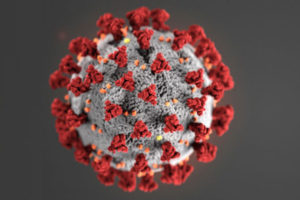COVID-19 did not have negative impact on healthcare delivery in Ghana – Research
 Findings of a rapid assessment of the impact of COVID-19 on health services delivery in selected health facilities in Ghana has indicated that COVID-19 did not have any significant negative impact on the number of deliveries conducted in hospitals.
Findings of a rapid assessment of the impact of COVID-19 on health services delivery in selected health facilities in Ghana has indicated that COVID-19 did not have any significant negative impact on the number of deliveries conducted in hospitals.
The assessment, done in 18 selected hospital of the Christian Health Association of Ghana (CHAG), showed that healthcare deliveries were higher in the first half of 2020, compared to the previous year.
According to the findings, pregnant women were still utilising health facilities for delivery even in the presence of the COVID-19 pandemic.
It was conducted in the middle and lower-level health facilities in the Northern, Middle and Southern belts of Ghana with funding from STAR Ghana Foundation.
Dr. James Duah, Deputy Executive Director of CHAG, who disseminated findings of the rapid assessment at a media engagement in Accra on Wednesday, said the assessment sought to document and share lessons on the impact of the pandemic on the local health system, particularly in rural communities where there were resource generation gaps.
The assessment focused on Reproductive, Maternal, Newborn and Child Health (RMNCH) services across the 18 CHAG facilities.
Findings of the assessment have, however, provided inputs for reforms based on the impacts of COVID-19 on Ghana’s healthcare delivery system.
The rapid assessment indicated that hand hygiene, mass masking and social distancing had positive effect in reducing the incidence of some infections including diarrhoe diseases and respiratory tract infections.
That, it said may have contributed to reducing the numbers attending health facilities.
Dr Duah said the wearing of face mask promoted respiratory health and offered the needed protection.
“Now we know how to keep diarrhoea and respiratory tract infections low through the use of facemask and hand hygiene, we need to promote face mask use if we want to keep diarrhoea and respiratory diseases down, however, there is the need to research into the effect of facemask on productivity before institutionalizing it,” he said.
He noted that the survey established a decline in respiratory tract infections and diarrhea diseases including abating cholera outbreaks.
Dr Duah said higher pregnancies were recorded during the COVID-19 season largely due to “work from home”, lock down, closing of schools and that investment in Family Planning should be considered.
Findings of the survey also highlighted the need for research into the use of herbal medicines purported to mitigate the spread and the impact of COVID-19.
It said a research into the effectiveness of steam inhalation in preventing COVID-19 or in the treatment of malaria would be a useful value add to the health system in its quest to contain the COVID-19 pandemic
“While equipment, medicines and services are available even in the advent of COVID-19 it is important to pay attention to waste disposal systems, there is inadequate systems at the basic level and this may contribute to spread of nosocomial infections,” it noted.
The assessment further stressed the need to invest in local production that reduced the cost of PPEs.
COVID-19 infections in Ghana, is at 91,477 with 763 deaths as of April 10, 2021.
Source: GNA
